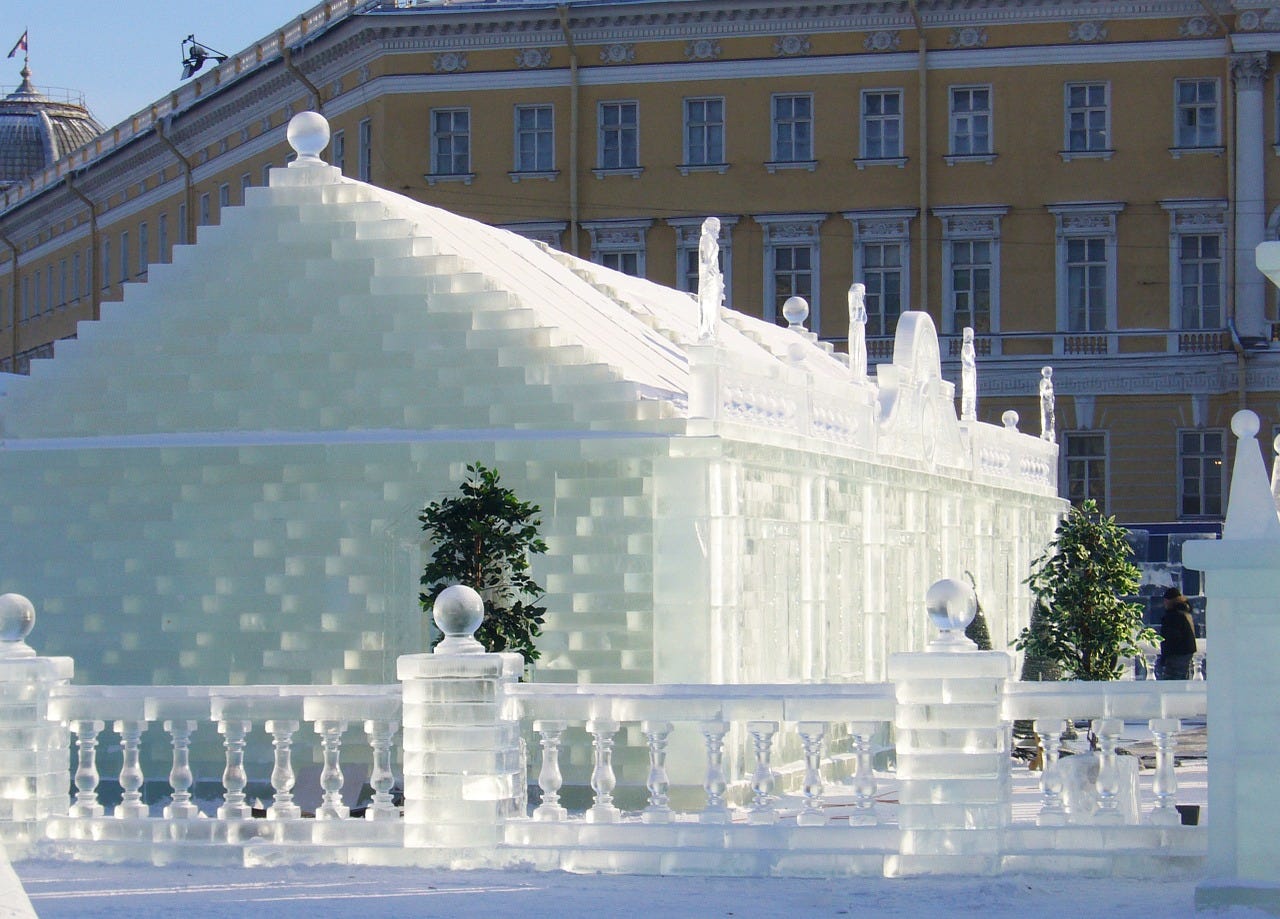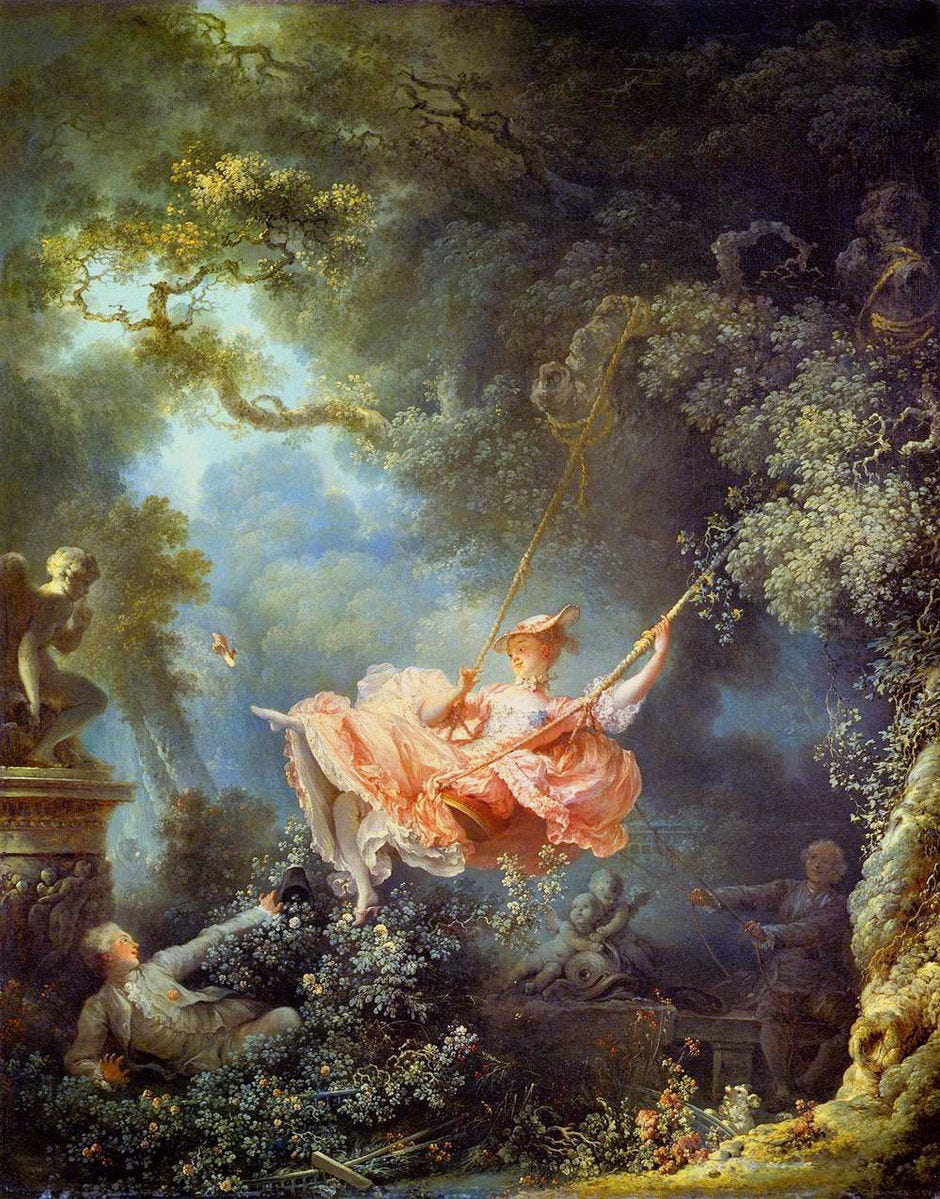In stone-cold anticipation of Either/Or’s release this spring—the only book I definitively plan to read this year by someone other than Proust—I recently couldn’t resist picking up Elif Batuman’s first: The Possessed: Adventures with Russian Books and the People Who Read Them. I knew it would be good. Batuman’s writing, without exception, is pristine. But I was unprepared for just how personally topical I’d find it in the early days of 2022, more than a decade after its publication, and further removed still from the vast web of connections she traces between mostly Russian, but also Turkish and Uzbek and other related histories of authorship and desire, before eventually grappling with René Girard himself. Let’s be clear, we’re not talking about literary possession qua mimetic prop (which is also interesting!). Hers is, rather, the oscillatingly transcendent and stultifying real-world corollary to the kind of “literary detective work” you find in A.S. Byatt’s novel Possession—which is also how my father first explained his own scholarship, and imparted his love of literature to me.
Anyway, a highlight among highlights in The Possessed is Batuman’s account of her trip to St. Petersburg to write this piece for the New Yorker on the modern reconstruction of eighteenth-century Empress Anna Ivanova’s literal ice palace:
For all the disparate allusions Batuman weaves together in this section, from hilarious anecdotes of Empress Anna’s vanity and girth to her ice palace’s literary influence on Lazhechnikov and even Coleridge’s “Kubla Khan” (“It was a miracle of rare device, / A sunny pleasure-dome with caves of ice!”), I couldn’t help but notice a chronologically inevitable and yet nonetheless, from my perspective, extremely conspicuous absence. Anyone who has had a child in the past ten years knows I speak of Frozen, Disney’s blockbuster franchise of ice. I’ve lost count of how many times I’ve seen it by now. Suffice it to say that my three-year-old is currently introducing himself to strangers as “Elsa.”
As far as preschool “possessions” of this sort go, it could be so much worse. There are two major Frozen films and a number of shorter ones, providing some measure of variety. The vocal talent is first-rate, and you know I appreciate lines like “My power flurries through the air and to the ground / My soul is spiraling in frozen fractals all around.” It’s pretty cleverly written overall, with Easter eggs, double entendres, and jokes for adults on topics as taboo as bestiality (re: Kristoff’s relationship with Sven the reindeer: “that’s a little outside of nature’s laws”). They take this tack further in Frozen 2, in which several of Olaf’s lines seem squarely targeted at adults alone (plucking a falling leaf from the air: “and yet change mocks us with her beauty”). The scene I like most though is early in the first film, when Anna traipses past simulacra of real paintings as she sings “For the First Time in Forever.” The Fragonard that caps off this sequence is particularly unmistakable:
I adore this painting, which brims with frivolity and leisure, and yet is also so replete with innuendo and symbolism—the phallic arm, the cuddling putti, the hushing cupid about to get a shoe to the face. The lush, Marie-Antoinette-style Anglo-Chinese gardens stand in sharp contrast to the rigid geometry of an ice palace, and yet this aesthetic divergence is underpinned by a similar decadence. Anna’s buoyant warmth likewise stands not just in contrast, but in complement, to Elsa’s icy exactitude. It’s no accident that it’s Anna who assumes the pose of Fragonard’s pink mistress. Still, there is always something inherently frozen about a painting!
This chain of connection—from Elif Batuman to Anna Ivanova to Frozen to Fragonard—fascinates me (I’m always fascinated by these six-degrees-of-Kevin-Bacon-type exercises without a telos), and I find myself wanting to follow each offshoot with Batuman’s possession. There are other tangents I ponder, too: Narnia, for instance, with its more archetypal ice queen; the ice queen trope in general—her evil glamour, which Disney overturns in Elsa without failing to pay homage to in the film (“Beautiful, powerful, dangerous, cold / Ice has a magic, can’t be controlled”). There’s something inherently Girardian about ice queens as well: the implication that they desire differently. They are fascinating in their apparent mimetic immunity, yet dangerous in this same imperviousness, in their magic, in their frozen arts and hearts. And yet they do not escape want entirely. The quintessential ice queen, with her cold beauty and reflective sheen? She’s a total narcissist.
It’s never possible to follow every thread though, let alone with the sort of doctoral possession Batuman devotes to Russian literature. It’s precisely the depth of her study that makes her observations and connections so trenchant. I think about another excellent book I read over the holidays: Four Thousand Weeks by Oliver Burkeman. Don’t mistake it for one of those Silicon-Valley productivity guides; it’s closer to a work of philosophy, and if anything more about leisure. It’s the book I was hoping Jenny Odell’s How to Do Nothing would be.
The crux of Burkeman’s thesis is twofold:
Our time on this earth is painfully short; there’s never a question of “whether” you’ll be able to do everything you want to do—you definitely won’t (you can’t freeze time, &c. &c.—it’s quite useless)
The path to a meaningful life lies in embracing this finitude, including, crucially, the languid pain of its imposed limits (enjoy the uselessness! enjoy it leisurely! my favorite anecdote Burkeman offers here is of Jennifer Roberts’s initial assignment in her art history classes at Harvard to “choose a painting or sculpture in a local museum, then go and look at it for three hours straight”—lol, frozen art)
You might say Burkeman’s written a guide for how to become Batuman-style possessed by your present surroundings and circumstances, though I’m hesitant to employ the construct “how to” with regard to his book, especially when one of the chief things I liked about it was its undidactic quality. Burkeman manages to avoid nihilism as well, both in its depressive and decadent-carpe-diem manifestations. He’s not against planning, nor does he see it as incompatible with a more present and leisurely life:
The real problem isn’t planning. It’s that we take our plans to be something they aren’t. What we forget, or can’t bear to confront, is that, in the words of the American meditation teacher Joseph Goldstein, “a plan is just a thought.” We treat our plans as though they are a lasso, thrown from the present around the future, in order to bring it under our command. But all a plan is—all it could ever possibly be—is a present-moment statement of intent. It’s an expression of your current thoughts about how you’d ideally like to deploy your modest influence over the future. The future, of course, is under no obligation to comply.
This passage delighted me immediately in its reconciliation of my two great New Years’ passions: unbridled leisure and Japanese datebooks, but thinking about it in conjunction with The Possessed began to reveal a still fuller shape. What Batuman really masters in her first book goes beyond Russian literature, beyond the pleasure of forming connections—it transcends Girard, even. Her prose suggests a genuine equanimity in the possessive pursuit of her concrete interests even as things unfold contrary to plan, often with no small share of personal discomfort, and sometimes with crushing pain. What she can’t control somehow folds naturally into her life’s passions, and she proves perpetually able to find both meaning and humor in the experiences she’s deliberately engineered and chanced into alike. “If I could start over today,” she concludes, “I would choose literature again. If the answers exist in the world, or in the universe, I still think that’s where we’re going to find them.”
For me, this actually seems to recommend against what would be frustratingly interrupted deep dives into Fragonard’s oeuvre or the mythography of ice queens, and just devoting my full attention to Frozen every time we watch it—stroking my son’s unbelievably Elsan hair and sharing in his rapture; maybe, if the mood strikes, drifting into a nap. Leisure's historical appeal to me, as Burkeman observes of our culture more broadly, hasn't generally been found so much in rest as the control and ability to follow my ice chain du jour with monomaniacal dilettantism (the recursive chain itself being my true possession). This is precisely what I have less of as a parent, in spite of all my plans. It is often said that “children are the future,” and in no respect are they more so than in being under no obligation to comply! Still, if I could start over today, I would choose motherhood (of a single child) again. In paying closer and closer attention to Frozen, in not trying to do anything else, to rest, I’ve started to sense these glimmers of a different kind of pleasure, this balmy calm in surrendering myself to more overtly chance possession. And, precisely in giving it up, didn’t I sort of follow an ice chain du jour with monomaniacal dilettantism anyway? Re-reading what I’ve just written, it’s clear to me that, honestly? I like Frozen a lot. Perhaps Elsa is my Abyssinian maid:
Could I revive within me Her symphony and song, To such a deep delight 'twould win me, That with music loud and long, I would build that dome in air, That sunny dome! those caves of ice! And all who heard should see them there, And all should cry, Beware! Beware! His flashing eyes, his floating hair! Weave a circle round him thrice, And close your eyes with holy dread For he on honey-dew hath fed, And drunk the milk of Paradise.
Very best,
Natasha
https://natashajoukovsky.com





